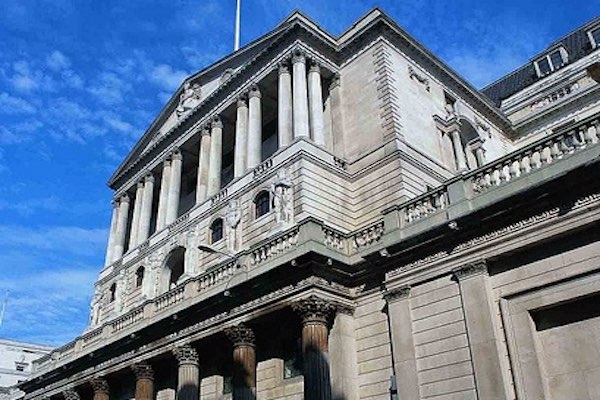The Bank of England Monetary Policy Committee has voted 6-3 to maintain the Base Rate at 0.5% this month.
The narrowing margin of the vote, 6-3 from 7-2 last time, raised the prospect of a rate increase in August.
The MPC also voted unanimously to maintain the stock of Sterling non-financial investment-grade corporate bond purchases, financed by the issuance of central bank reserves, at £10bn.
The committee also voted unanimously to maintain the stock of UK government bond purchases, financed by the issuance of central bank reserves, at £435bn.
The MPC’s latest report noted: “CPI inflation was 2.4% in May, unchanged from April. Inflation is expected to pick up by slightly more than projected in May in the near term, reflecting higher dollar oil prices and a weaker Sterling exchange rate.
“Most indicators of pay growth have picked up over the past year and the labour market remains tight, suggesting that domestic cost pressures will continue to firm gradually, as expected.
“The Committee’s best collective judgement remains that, were the economy to develop broadly in line with the May Inflation Report projections, an ongoing tightening of monetary policy over the forecast period would be appropriate to return inflation sustainably to its target at a conventional horizon.
“For the majority of members, an increase in Bank Rate was not required at this meeting.
“All members agree that any future increases in Bank Rate are likely to be at a gradual pace and to a limited extent.”
Nick Dixon, investment director at Aegon said: “With global trade concerns, continued Brexit uncertainty and subdued domestic activity, today’s MPC decision to hold rates is unsurprising.
“Looking further out, two factors will be critical for inflation and hence interest rates. First the quality of Brexit especially the eventual trade deal will impact the level of sterling and hence inflation.
“Second is the labour market and whether wage pressures become embedded and create ‘cost push’ inflation.
“If sterling continues to depreciate and wage increases lead to higher prices, there will be pressure for interest rates to rise higher and faster than markets currently expect.”

